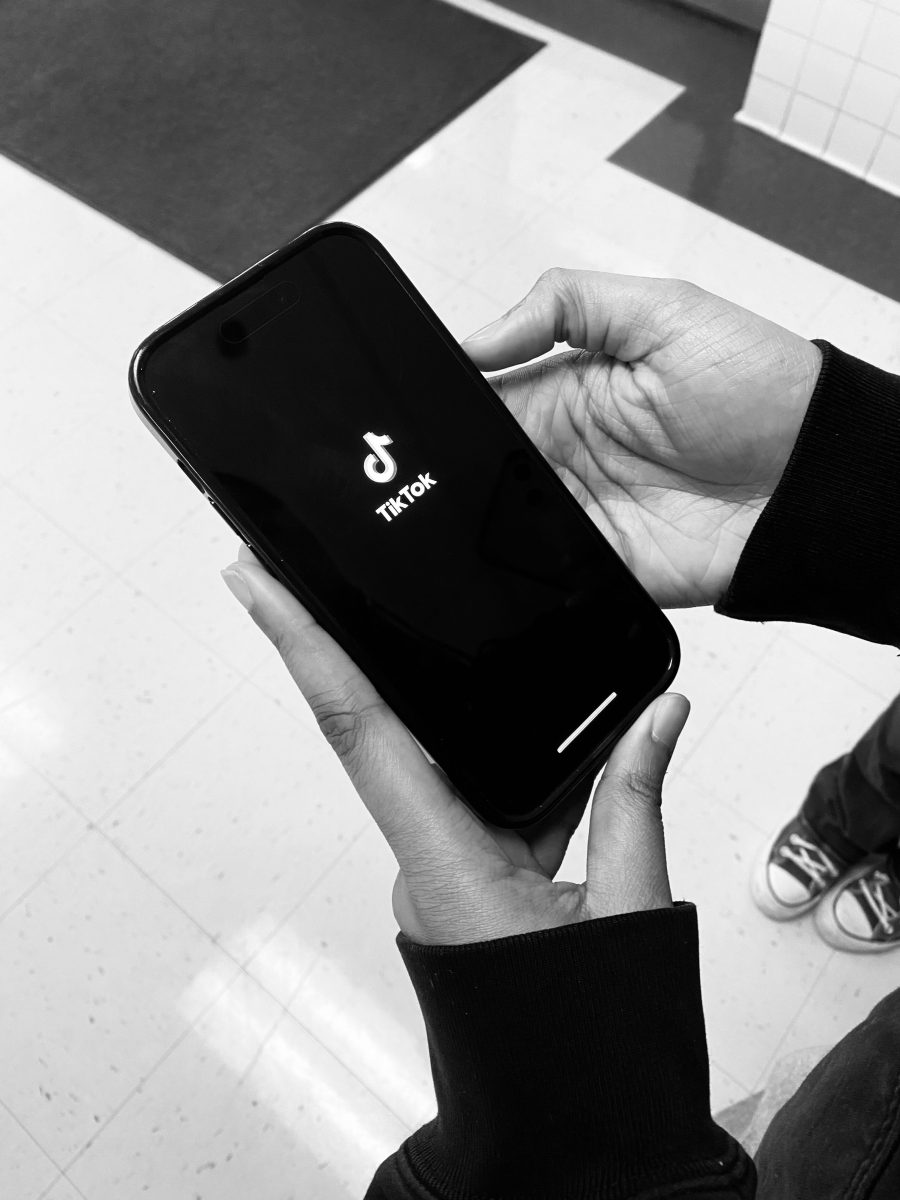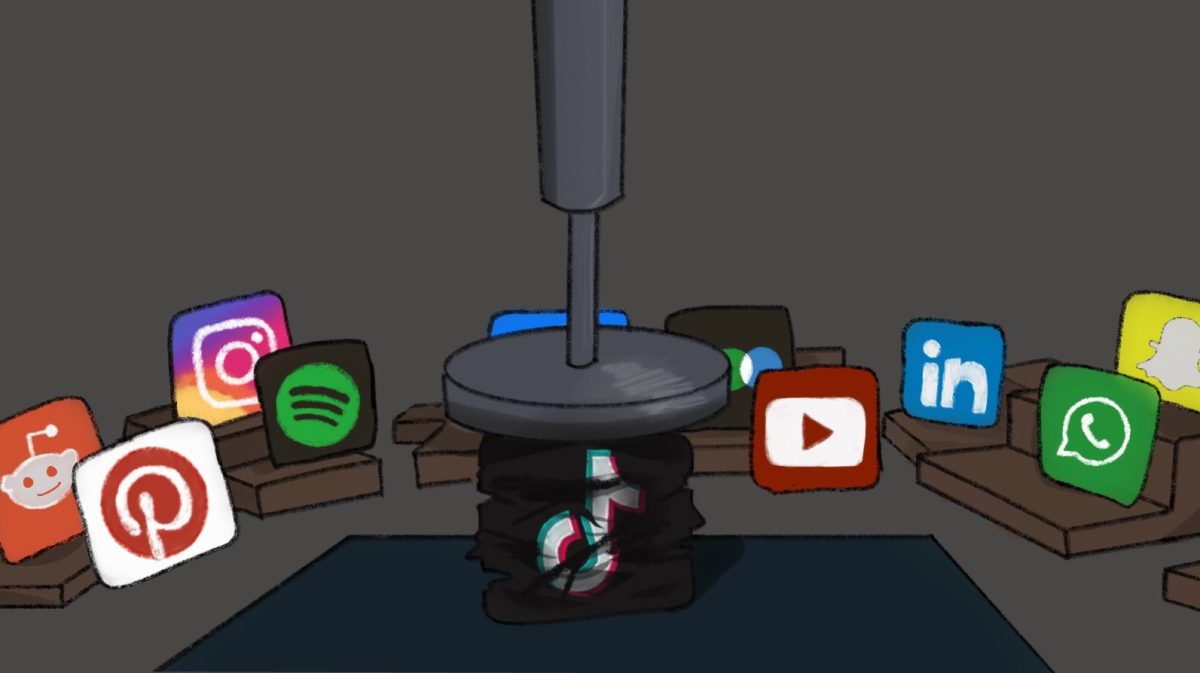Page after page, post after post, video after video—each scroll through the mini boxes of digital content serves as a relentless cascade of stimulation.
In an era where smartphones have become an indispensable part of daily life, the issue of phone addiction has emerged as a pressing concern affecting individuals of all ages, especially those in Generation Z. From incessant scrolling on social media to compulsive checking of notifications, the allure of digital devices has led many students down a slippery slope of dependency.
“Just my TikTok screen time is about twenty-eight hours weekly,” an anonymous source said. “I find that [social media and the apps on my phone] really distract me from doing my schoolwork. Throughout the day, I constantly feel very compelled to just be on my phone which causes me to lose so much track of time.”
According to data from the Spanish National Statistics Institute, the prevalence of smartphones among children as young as eleven years old is alarming, with usage skyrocketing as they grow older. With access to a plethora of apps, individuals raised in the past decade onward have become digital natives and accustomed to constant stimulation. The jump from traditionally longer forms of media such as YouTube to now, two to ten seconds worth of content on platforms like TikTok has reinforced the idea of excessive smartphone usage, leading to a decline in attention spans and cognitive abilities.
“When I realize all the time I have wasted [due to being on the phone and online], I often have to stay up till 2 am or later to finish all the work I was delaying,” the source said. “It is really destructive and a bad cycle. Every single swipe I take reduces my attention span and just keeps increasing my screen time.”
The dopamine rush induced by smartphone addiction has profound effects on individuals’ daily lives, including their ability to engage in normal activities such as school. As Dr. Anna Lembke, an expert on addiction, asserts, smartphones have become the “modern-day hypodermic needle,” providing quick hits of dopamine with each swipe. This constant seeking of attention, validation, and distraction has perpetuated a cycle of reliance that is difficult to break.
With each smartphone interaction, whether scrolling through social media feeds or binge-watching videos, the brain releases dopamine in anticipation and in response to the activity itself. However, the fleeting pleasure and sense of relaxation derived from these digital interactions leaves individuals craving more, leading to compulsive behavior and diminished attention spans.
This inability to maintain focus affects academic performance and impedes critical thinking skills. To combat smartphone addiction and its detrimental effects on academic performance and mental health, it has been suggested that users implement periods of fasting from digital devices. By temporarily abstaining from smartphone usage, individuals can reset their brain pathways and gain perspective on their habits.
“I did take a detox off social media to help my mental health, and it turned out that my scrolling behaviors were toxic,” the source said. “I was endlessly scrolling. Ten-minute videos became three-minute videos, and then five-second videos, none of it could hold my attention because I was just looking for a dopamine hit at that point and furthering myself into a slump rather than getting myself out of it.”









